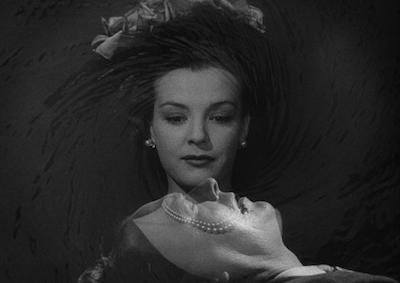News of the Day, Vol. 19, No. 257
U.S., 3/18/1948
Paper Moon
U.S., 1949
Student films can be one of the most critically and historically overlooked types of production but they can also yield surprising treasures, especially with regards to promising voices from marginalized communities that may not have had an equitable opportunity to build careers beyond school. As a woman enrolled in the UCLA animation department at mid-century, Flora Mock (1914-2014) was one such pioneering voice. Later a faculty member at UCLA, as a student, Mock specialized in mixed-media collages such as Paper Moon (1949), an animated interpretation of the Nat King Cole song that the L.A. Times described in 2011 as a “West Side Story-style romance told in the vocabulary of cut and torn paper.”
16mm, color, 4 min. Director: Flora Mock.
Restoration funding provided by the National Film Preservation Foundation. Restored by the UCLA Film & Television Archive from the 16mm original color reversal and a 16mm print. Laboratory services by FotoKem, Audio Mechanics, DJ Audio, Inc., Simon Daniel Sound. Special thanks to Mark Toscano from the Academy Film Archive.
The Argyle Secrets
U.S., 1948
An investigative reporter is confined in the hospital with a great story that every newspaper in town wants—but he’ll only speak to his colleague, Harry Mitchell (William Gargan). While explaining his possession of the Argyle Album, an exposé of Nazi sympathizers, the boss is murdered and Harry becomes the prime suspect. In this jacked-up version of The Maltese Falcon, the Argyle Album becomes a much sought-after MacGuffin by Harry, international blackmailers (John Banner and Jack Reitzen) and femme fatale Marla (Marjorie Lord).
Mitchell is not, even by film noir standards, a good guy. He is a selfish reporter after a hot story and lets nothing stand in his way. His treatment of women should at the very least make you wince, if not out-right gasp. The Brooklyn-born Gargan tried his hand at bootlegging and detective work before settling on acting, which would prove to be a good background for many of the roles he would play. John Banner, a Jewish émigré from Austria best known for playing the affable Sergeant Schultz in the situation comedy Hogan’s Heroes (1965-1971), plays Winter, the menacing leader of the blackmail ring. Nearly unrecognizable at 163 pounds, Banner enjoys one of the longest explanatory climaxes in film history amidst acetylene torch mayhem.
Director Cy Endfield learned his craft on the set of Orson Welles’ The Magnificent Ambersons, hired by Welles to help hone his magic skills. Endfield tended towards leftist thinking and his first film, a short subject documentary entitled Inflation (1943), a subtle attack on corporate greed, drew the ire of studio executives. Eventually, Endfield was brought before the House Un-American Activities Committee and, after refusing to name names, was branded a sympathizer. Through with Hollywood, Endfield moved to England in 1951 where he made one of his most famous films, the historical biopic, Zulu.
—Miki Shannon
DCP, b&w, 64 min. Production: Eronel Productions. Distribution: Film Classics. Producers: Sam X. Abarbanel, Albert Bildner, Alan H. Posner. Director: Cy Endfield. Screenwriter: Cy Endfield. Based on the radio play The Argyle Album by Cy Endfield. Cinematographer: Mack Stengler. With: William Gargan, Marjorie Lord, Ralph Byrd, Jack Reitzen, John Banner.
Restoration funding provided by the Film Noir Foundation and the Hollywood Foreign Press Association's Charitable Trust (the HFPA Trust). Restored by the UCLA Film & Television Archive from a 35mm nitrate composite dupe negative. Laboratory services by Roundabout Entertainment, The PHI Stoa Lab, Audio Mechanics, Simon Daniel Sound, DJ Audio, Inc. Special thanks to the British Film Institute. In memory of Yoram Kahana (1939-2021), champion of film preservation.






 Mobile Navigation
Mobile Navigation

